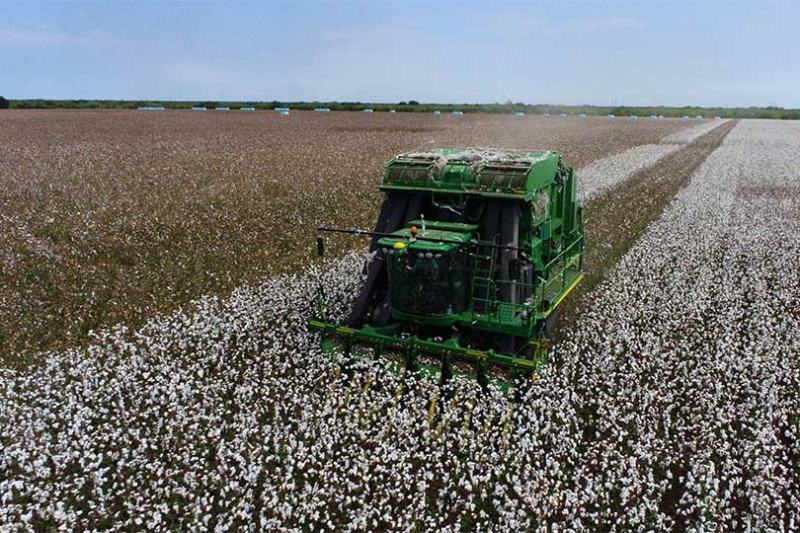By Shelby Shank
Field Editor
Cotton farmers on the Rolling Plains are facing another year of and challenging weather conditions and low yields.
Kevin Corzine, a cotton farmer in Jones and Haskell counties, was optimistic for a good crop this year.
But it proved to be another difficult season with a hot, dry summer.
“Harvest is not turning out very good,” he said. “Out of the 3,000 acres planted, it looks like I’ll probably harvest somewhere around 600 acres of it.”
The year began with a promising wet spring, but from July to September, Corzine and other farmers in the area faced severe drought and high temperatures.
“There was no rain, and the temperature was about 110 to 113 degrees for a long time,” he said. “That was not good for our cotton.”
In Jones County, cotton must be planted by June 20, one of the latest crop insurance deadlines in Texas.
Some farmers experimented by planting earlier in April, but the intense summer heat hurt yields, resulting in disappointing harvests.
“Their cotton looked great all year, but in the end, it was trying to bloom and set bolls during the peak of the heat and sat there a long time open before they were able to harvest it,” Corzine said. “It didn’t grade very well once it was ginned, but that’s not to say in another year that that might not have worked. I don’t think that was as good as what they hoped it would be.”
Weather conditions have been challenging over the past three years, with good moisture in the spring to only be followed by dry, hot conditions during the growing season.
“We really need an August rain. That’s what kind of makes or breaks our crop,” Corzine said.
The weather isn’t the only challenge facing farmers right now. Input costs remain high and commodity prices are low, creating extremely tight margins in agriculture.
“It’s hard times in agriculture right now. It seems like the price of everything is up except for what we’re getting paid for our commodities,” he said. “We need a farm bill that really works for us, and we need some type of disaster aid package to help get us through.”
Farm organizations like Texas Farm Bureau (TFB) and the American Farm Bureau Federation have urged Congress to pass a modernized farm bill and a disaster assistance package.
“The delay in passing a bill with an updated farm safety net is causing great uncertainty for hardworking Texas farm and ranch families, while in turn putting consumers and our national food security at severe risk. The continued inaction is troubling and should not be tolerated,” TFB President Russell Boening said. “It is obvious there will need to be short-term natural disaster and economic assistance, in addition to passing a new farm bill this year. Texas Farm Bureau remains committed to doing everything in its power to urge Congress to deliver the farm bill and assistance to producers they so well deserve.”


Leave A Comment